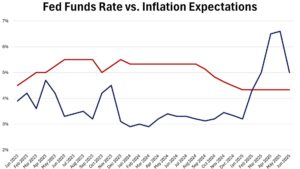Overview:
A few weeks ago, we recommended purchase of Enova International (ticker: ENVA). While we are positive on the company, we did express some concerns in the initial report:
We do note concern regarding 1Q loan growth, entry of lower-priced traditional banks and credit unions into Enova’s market, and a much longer than usual risk section as reasons to be cautious. While we believe the risk/reward ratio for the company is favorable, there is more risk of a negative outcome here than in other names we’ve recommended.
Since then, the company has reported first quarter earnings, and we’ve had the chance to speak with Enova CFO, Steve Cunningham. That report, the commentary on the conference call, and our conversation with Mr. Cunningham went a long way towards addressing some of our biggest concerns about the company.
A Return to Loan Growth:
In our initial report, we wrote about how Enova had an unusual 2020 characterized by a reduction in the size of the loan portfolio which was more than offset by a huge decrease in charge-offs. For the company to meet our long-term earnings projections, there will need to be a return to a more normal economy and normalized loan growth. The first quarter earnings report mentioned that the company was encouraged by the recent signs of a recovery in demand, and on the conference call, management talked about seeing an increase in recent originations.
We asked Mr. Cunningham to clarify whether Enova was seeing an actual increase in loan demand, or whether that was a projection based on expecting the economy to continue its recovery. He said that demand is up and improving. He thinks that as the economy reopens, spending will go from large retailers like Amazon and Costco to small and medium businesses. Enova is already seeing consumer demand and spending increasing which is helping the small and medium businesses that Enova serves.
Insider Sales:
Another concern we noted in the original report was related to insider selling. Mr. Cunningham told us that Enova executives had a large number of options that had been granted 7-8 years earlier and were about to expire. Executives exercised those in-the-money options and then made some sales both for diversification, and to pay taxes on the option gains. Given the lengthy terms of the options, the need to pay taxes, and the fact that we don’t expect company executives to have 100% of their portfolios in their own company’s stock, we find this answer reassuring.
Competition from Traditional Financial Institutions:
During the initial research process, we spoke with former executives of Enova competitors. One of them mentioned that traditional financial institutions were entering Enova’s non-prime lending space with reduced rates. Another spoke about how traditional finance was entering the space, but with alternative financial companies like Enova as partners rather than as competitors.
Mr. Cunningham gave several reasons that traditional banks were partnering with alternative finance companies rather than competing with them. First, traditional banks don’t have the proper credit scoring model. It’s obvious that someone with an 800+ credit score will be likely to repay a line of credit. Below a certain FICO score, that relationship breaks down, and having experience with non-FICO credit scoring is important to pricing loans correctly. Second, non-prime customers tend to require a greater level of personal customer service than prime customers do. Call centers need to be staffed to handle greater call volume. Third, once non-prime loans are a large enough percentage of a bank’s loan book, the bank will need to maintain a greater level of capital reserves which can reduce return on equity. Finally, trying to collect on relatively low loan amounts from low credit score customers may create a negative public image for a traditional bank.
Conclusion:
These topics were three of the biggest risk factors that concerned us when we wrote our original piece. Recent events, company statements, and our conversation with Enova’s CFO have led us to believe that these risk factors are less significant than we had initially believed. We are incrementally more positive on Enova’s business, and are more comfortable with our current long position.
For more timely access to information, and for additional guidance about these stocks, please reach out to us at IR@DeepKnowledgeInvesting.com to discuss subscribing.



